Leaders agree on three pillars of cooperation at US-led Indo-Pacific talks

[SAN FRANCISCO] Member economies of the Indo-Pacific Economic Framework for Prosperity (IPEF) have reached a consensus on three “pillars” of cooperation, while the crucial trade pillar remained in progress.
“We still have more work to do, but we made substantial progress in record time,” said US President Joe Biden, following the conclusion of a three-hour IPEF Leaders’ Meeting held in San Francisco on Thursday (Nov 16).
The US-led IPEF was formed in May 2022, and was widely seen as a means for America to counter China’s growing clout in the region. The 14 member countries are Australia, Brunei, Fiji, India, Indonesia, Japan, Malaysia, New Zealand, the Philippines, Singapore, South Korea, Thailand, the United States and Vietnam.
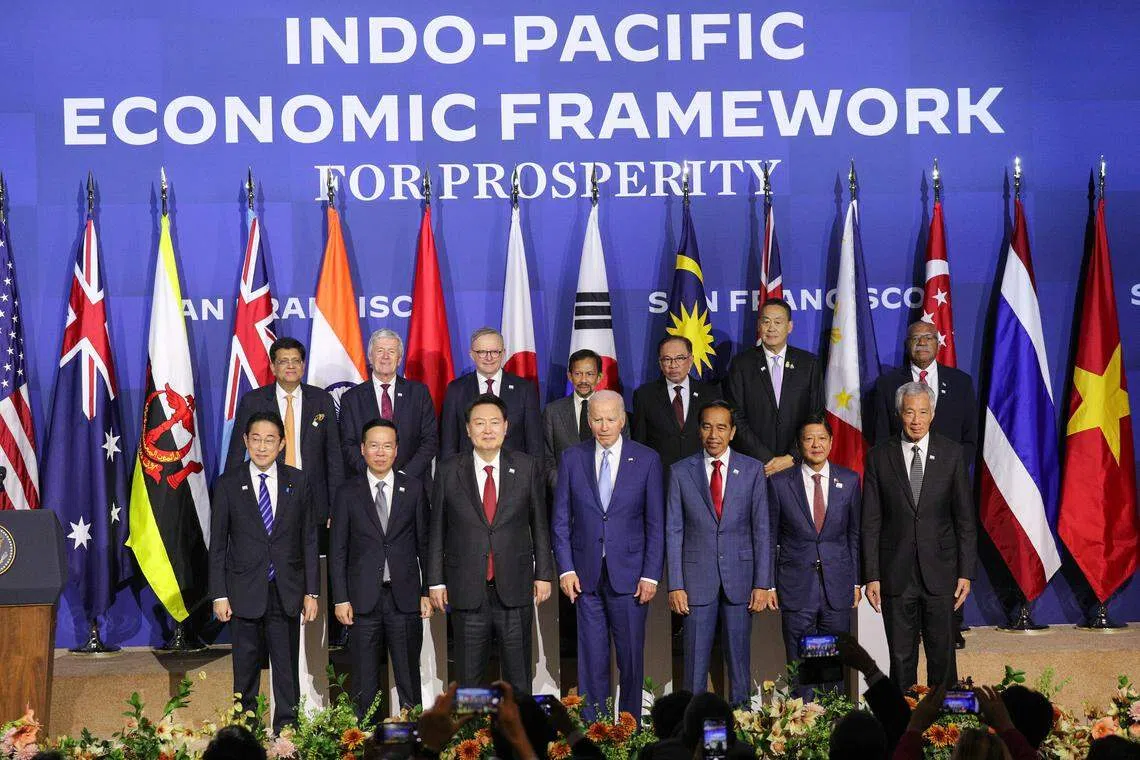
Over the past week, leaders signed a first-of-its-kind agreement on supply chain resilience and have “substantially concluded” groundbreaking clean economy and fair economy agreements.
Singapore Prime Minister Lee Hsien Loong said the Republic welcomes the IPEF’s forward-looking and positive agenda on economic cooperation in the Indo-Pacific.
Agreements on the three pillars, he said, will enhance the trade and investment environments in members’ economies for businesses, workers and other stakeholders.
A NEWSLETTER FOR YOU

Asean Business
Business insights centering on South-east Asia's fast-growing economies.
He added that he welcomed progress on the trade agreement.
“Trade is the lifeblood of the global economy, and the trade pillar is an integral part of the IPEF agreement and US’ economic engagement with the region.
“But developing new and creative approaches in trade policy is not easy, and takes time in order to carefully work through sensitive areas.”
The prime minister said he is looking forward to further progress in the negotiations, as well as in tangible cooperation next year.
A leaders’ statement on IPEF said members “have made progress on and continue to work towards a mutually beneficial trade pillar outcome that advances workers’ rights through strong and enforceable labour standards; improves economic opportunities for families, ranchers and farmers, and micro, small, and medium-sized enterprises; and promotes fair, open, and rules-based trade, accompanied by technical assistance and economic cooperation, benefiting all segments of society”. India is not a member of the trade pillar.
Reports said a consensus on trade remains elusive amid differences among members. In particular, the US is pushing for rules that would set high labour and environmental standards that South-east Asian countries are not prepared to accept without incentives such as tariff cuts, Nikkei Asia reported.
President Biden’s address at a parallel event – the Asia-Pacific Economic Cooperation (Apec) CEO Summit – on Thursday morning offered a clue on his priorities, as he noted that the world is “fundamentally different” from 30 years ago, when the first Apec summit was convened.
“The questions we must answer today are not about how much we trade, but about how we build resilience, lift up working people, reduce carbon emissions, and set up our economies to succeed over the long run. How to deliver growth from the bottom up and the middle out so no one gets left behind,” he said.
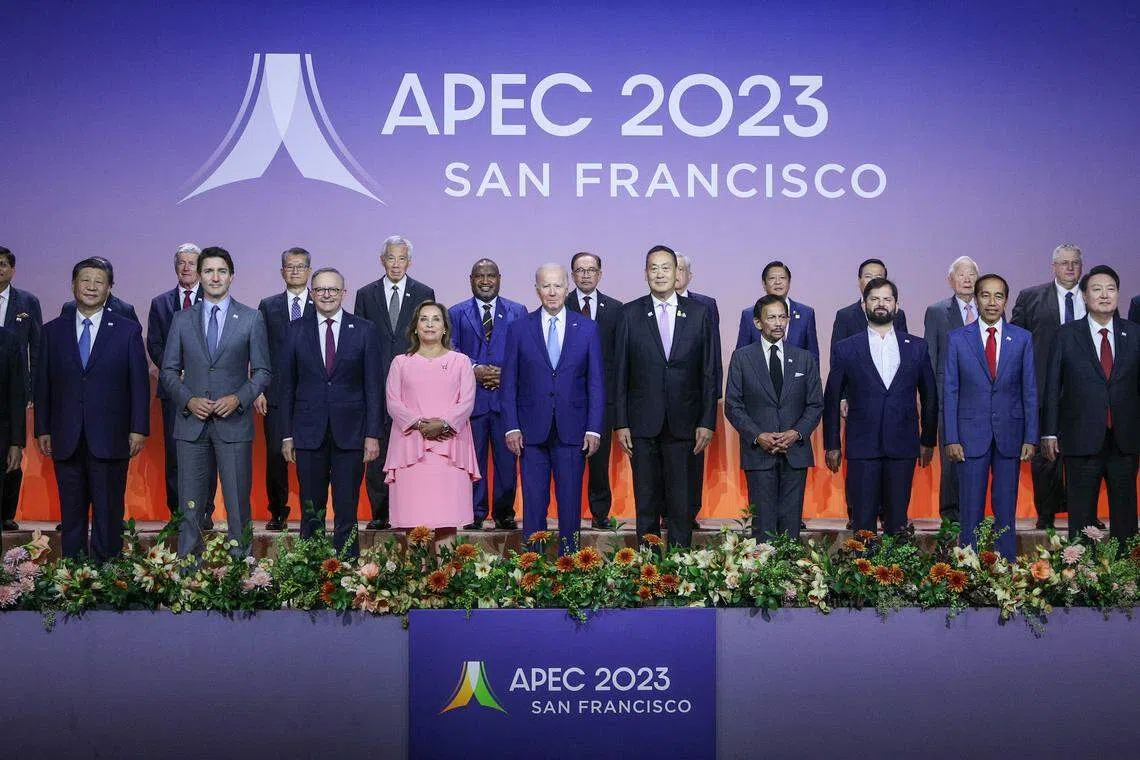
Nonetheless, IPEF leaders said consensus on the other three pillars will promote workers’ rights, increase their capacity to prevent and respond to supply chain disruptions, strengthen collaboration on the transition to clean economies, combat corruption and improve the efficiency of tax administration.
Meanwhile, they also launched the IPEF critical minerals dialogue to foster closer collaboration on strengthening critical mineral supply chains, and boosting regional economic competitiveness.
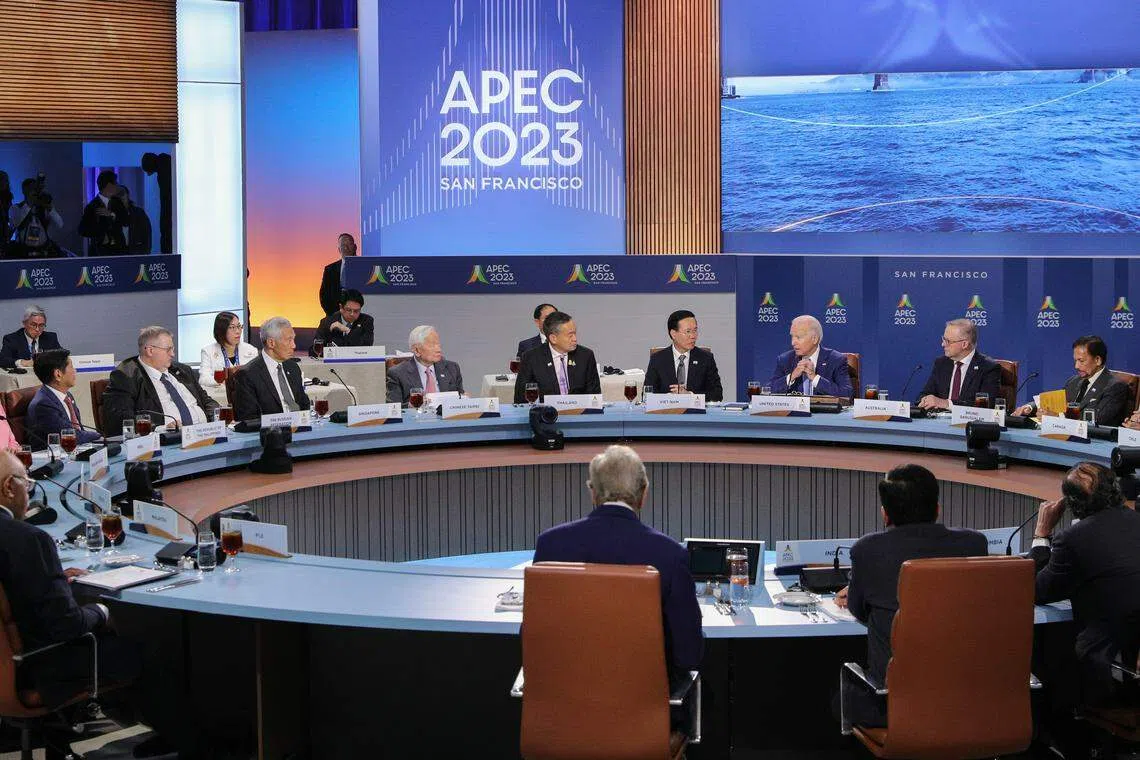
Separately, at the Apec leaders’ informal dialogue on sustainability, climate and just energy transition earlier, PM Lee said Singapore is very encouraged that the US has made sustainability a key priority of its Apec chairmanship.
He offered three suggestions on what Apec economies can collectively do to accelerate progress on climate change.
The first is to invest in new technologies, he said, noting that low-carbon hydrogen and carbon capture, utilisation and storage technologies are promising.
But new technologies have to be deployed at scale to become affordable, and no economy can do this alone, he added. Singapore is looking forward to working with like-minded partners to scale up supply chains for low-carbon hydrogen.
PM Lee’s second suggestion is for Apec members to work together to develop high-integrity carbon markets, with clear and harmonious standards on carbon credits.
This would build trust and confidence in the market, and it would encourage investments, create jobs and foster sustainable development, including by protecting biodiversity.
He also called on members to work on developing new financial models to support the energy transition and decarbonisation, since climate transition projects require huge capital investments.
Noting the need to unlock private financing to complement public capital, PM Lee said Singapore is in active discussions with industry partners, multilateral banks and philanthropies to develop a blended finance partnership.
This, he said, would catalyse capital for green and transition projects in Asia, and also to pilot innovative projects to scale the early retirement of the region’s “unabated coal-fired power plants”.
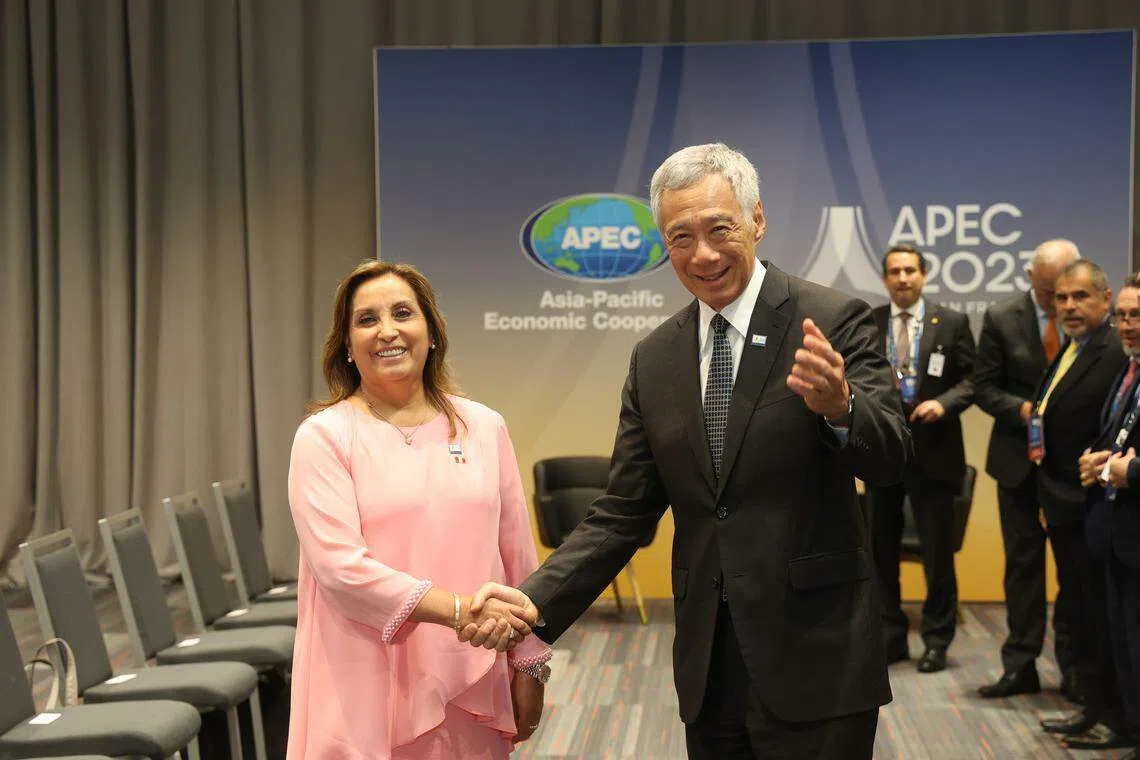
In between meetings, PM Lee also met Peru President Dina Boluarte on the sidelines.
The Prime Minister’s Office said they discussed Peru’s priorities for its chairmanship of Apec in 2024, as well as opportunities to advance bilateral ties and promote greater trade and investment flows between the two countries and regions.
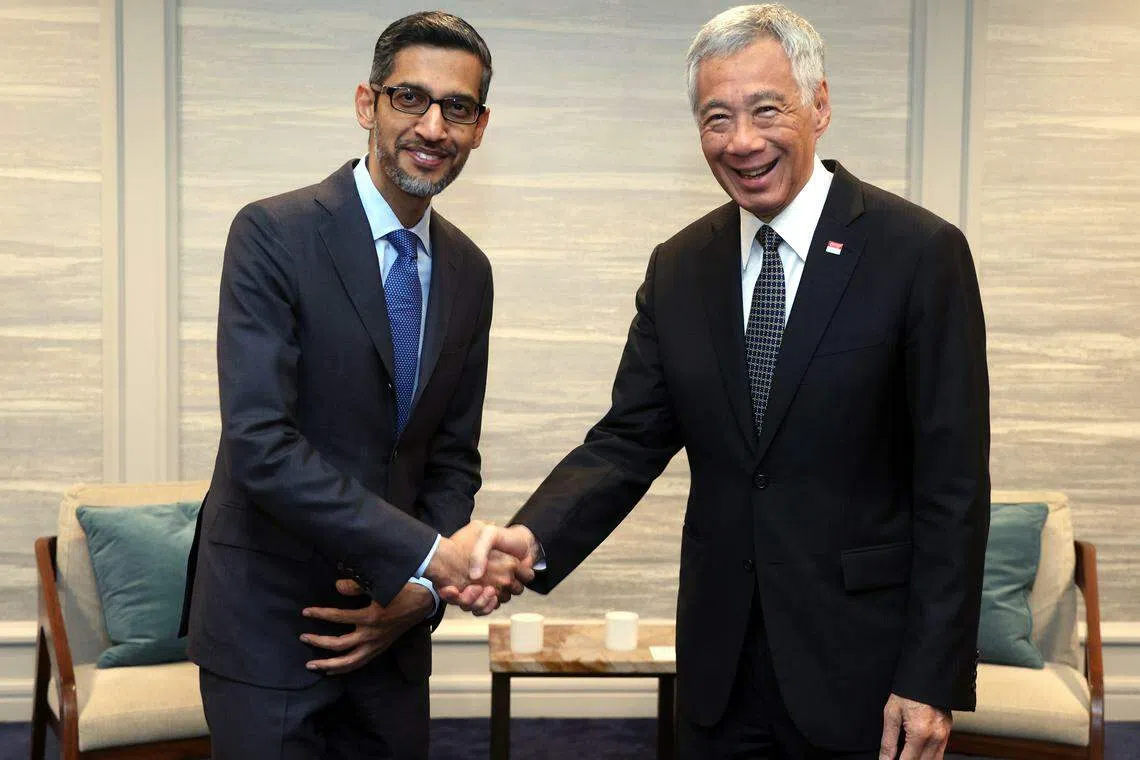
PM Lee also met Alphabet and Google CEO Sundar Pichai on the sidelines of the summit, following his visit to the tech giant’s headquarters in Silicon Valley two days ago.
KEYWORDS IN THIS ARTICLE
BT is now on Telegram!
For daily updates on weekdays and specially selected content for the weekend. Subscribe to t.me/BizTimes
Singapore
Singapore hotels’ average room rate grows in March; tourist arrivals reach new post-Covid high
Singapore top recipient of Q1 cross-border investments in Apac: Knight Frank
Shanmugam, Vivian seek aggravated damages from Lee Hsien Yang over post on Ridout Road rentals
Singapore and Canada to enhance science and technology cooperation
Daily Debrief: What Happened Today (May 2)
US-China competition not the most worrying, lack of communication is: Gan Kim Yong
